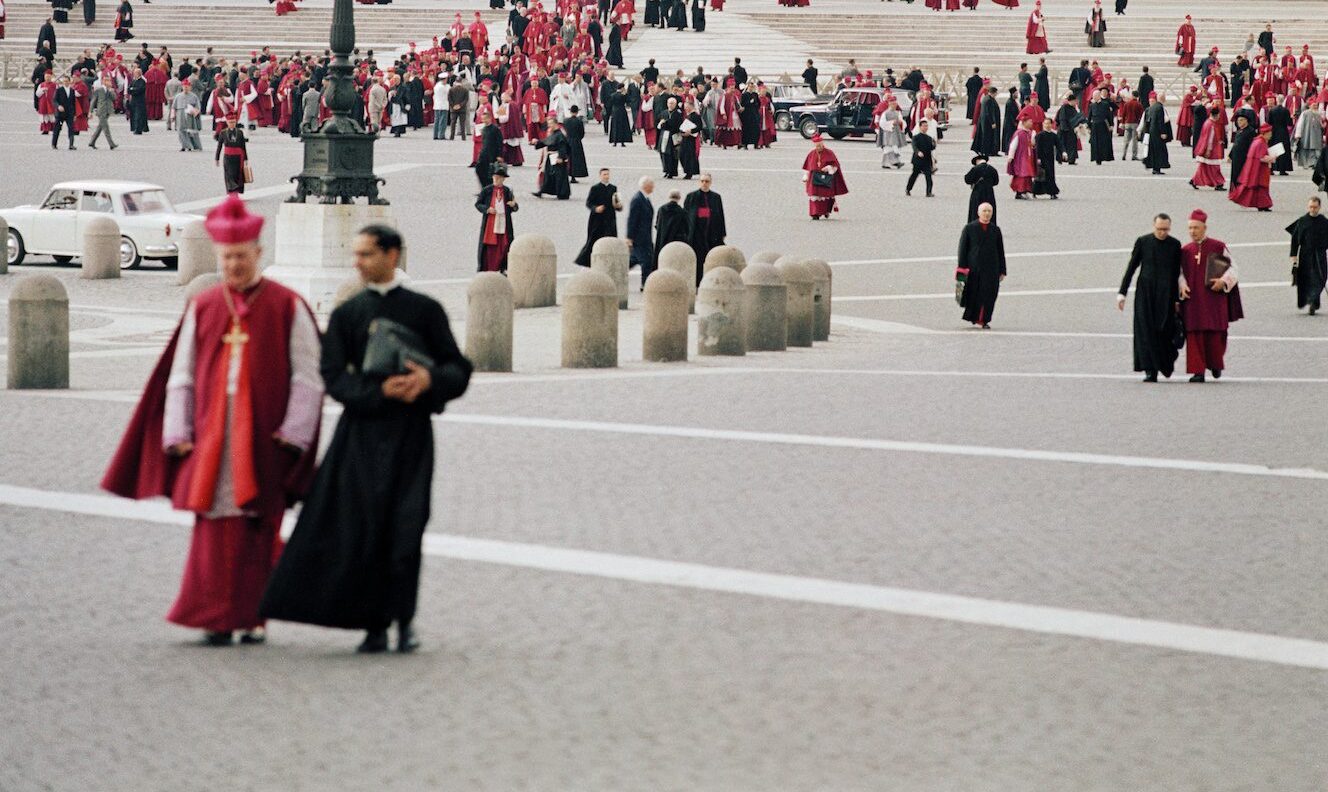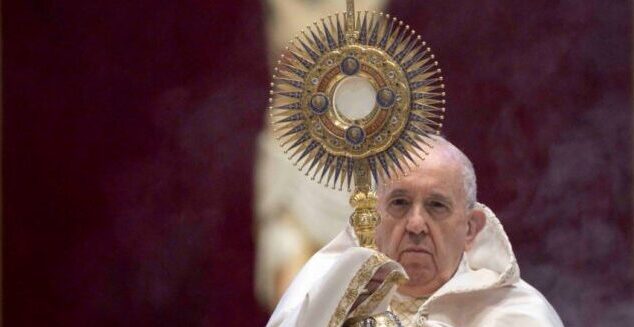A: It is a corporal work of mercy to visit the sick and many priests spend a significant amount of time visiting nursing homes, assisted living facilities, and other care homes. While there, priests often celebrate Mass for the community. Questions arise as to what Mass to celebrate with the community since they often are unable to attend Sunday Mass and since the priest is only able to visit during the week. Should the priest use the daily Mass orations and Lectionary readings? Or may he use the Sunday prayers and readings (since often there are missalettes available that only contain Sunday readings)?
The rubrics of the Roman Missal do not foresee the possibility of celebrating a Sunday Mass (with Gloria, Creed, two readings before the Gospel, a Sunday Preface, etc.) during the week. There are some who have said that since the care home community cannot gather on Sunday, the Sunday Mass should be transferred to a weekday for the community since Sunday is the primordial holy day. After all, the General Instruction of the Roman Missal (GIRM) states, “The pastoral effectiveness of a celebration will be greatly increased if the texts of the readings, the prayers, and the liturgical chants correspond as aptly as possible to the needs, the preparation, and the culture of the participants” (352). On the other hand, this effectiveness can only be achieved by appropriate use of the many possibilities of choice described in the Roman Missal and not by adding to what is not foreseen.
Using the previous or following Sunday orations on weekdays of Ordinary Time is certainly within the rubrics since the rubrics allow any of the 34 Masses of Ordinary Time to be used, provided the pastoral needs of the faithful are taken into consideration. The Gloria and Creed would be omitted and a Common Preface, rather than a Sunday Preface, would be used. While the Gloria and Creed may be sung or said at particular celebrations of a more solemn character even if not usually prescribed (see GIRM, 53, 68), most Masses at care homes would not fall into this category. Since the weekdays of Advent, Christmas, Lent, and Easter have proper Masses, their orations should be used rather than the previous or following Sunday. The GIRM explains that during these more important times of the year, provision has already been made for the spiritual nourishment of the faithful by means of the orations proper to these times of the year that exist for each weekday in the Missal (see GIRM, 363).
Solemnities and Feasts have proper orations and should be celebrated as outlined in the Roman Missal. For Obligatory Memorials, the proper orations should be used. Nevertheless, in the case of Mass at a care home, when only a collect is provided, it might be more prudent to use the Prayer over the Offerings and the Prayer after Communion from the weekday of the current season (in Ordinary Time, any of the 34 formularies may be used) so that these prayers can be read in a missalette by those who are hard-of-hearing. A pastoral judgment should be made in determining whether or not to celebrate Optional Memorials but the same recommendation is made: apart from proper orations, it is recommended to use the temporal orations rather than those from the Commons if a missalette is being used.
Regarding the Lectionary readings, the GIRM notes that during weekdays in any season, the readings will in general be used on the days to which they are assigned, since readings are provided for each day of every week throughout the entire course of the year. Nevertheless, the GIRM permits the priest, in Masses for special groups, to choose texts more particularly suited to the particular celebration (see GIRM, 358). Thus, a priest could legitimately choose to use the Sunday readings during the week at Masses in care homes.
In planning Masses at nursing homes, assisted living facilities, and care home, the priest should remember that the salvation of souls is the supreme law in the Church and he should be more attentive to the common spiritual good of the People of God than to his own inclinations (GIRM, 352). Nonetheless, the Second Vatican Council clearly teaches that no other person, even if he be a priest, may add, remove, or change anything in the liturgy on his own authority (Sacrosanctum Concilium, 22).
—Answered by Father Alan Guanella
Diocese of La Crosse, WI


